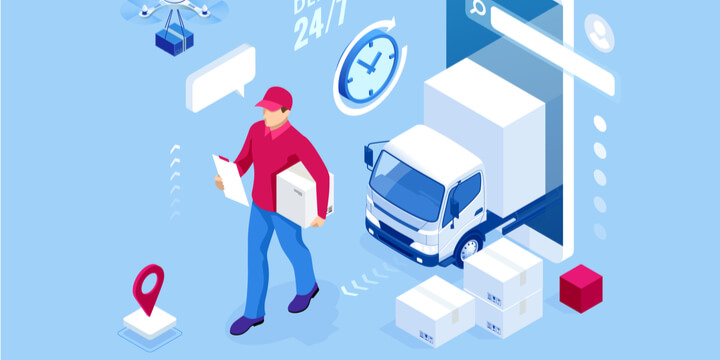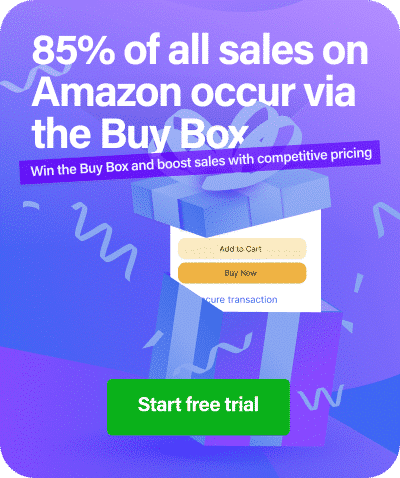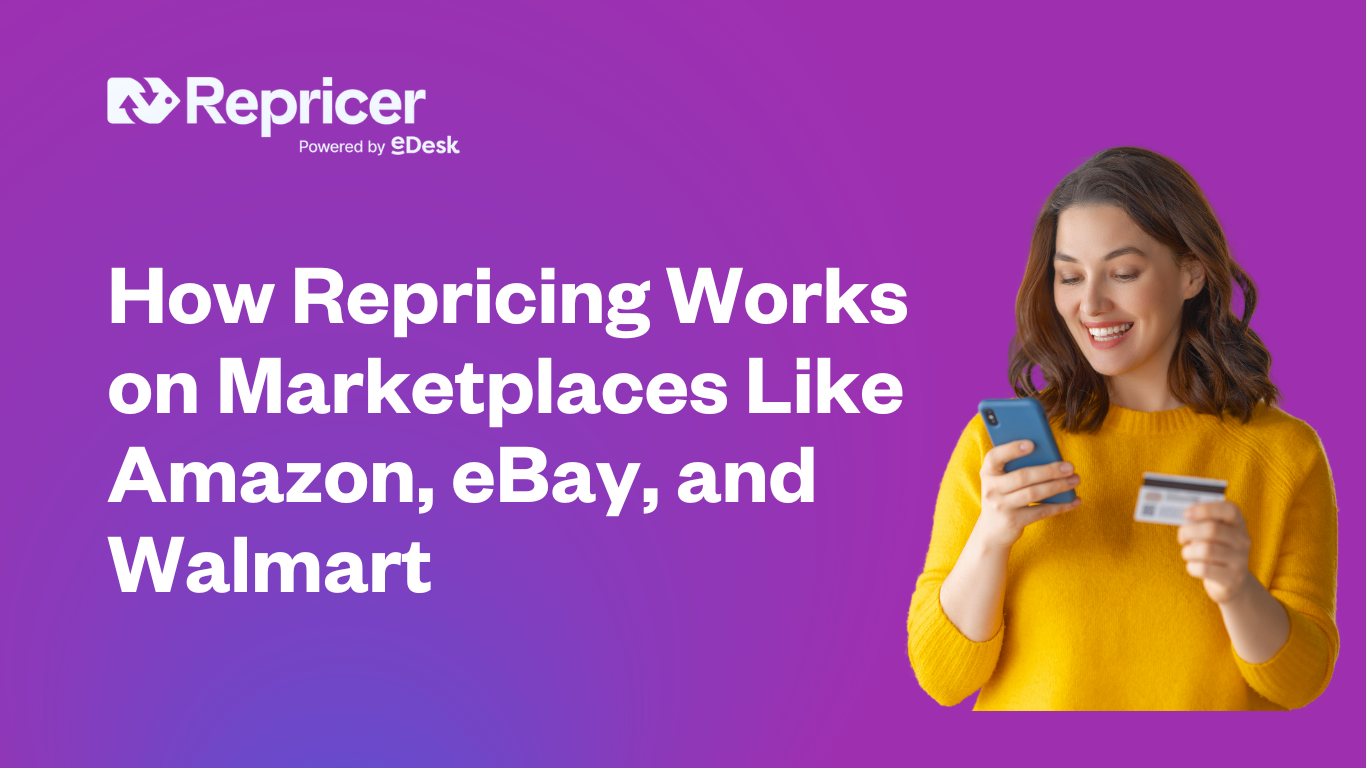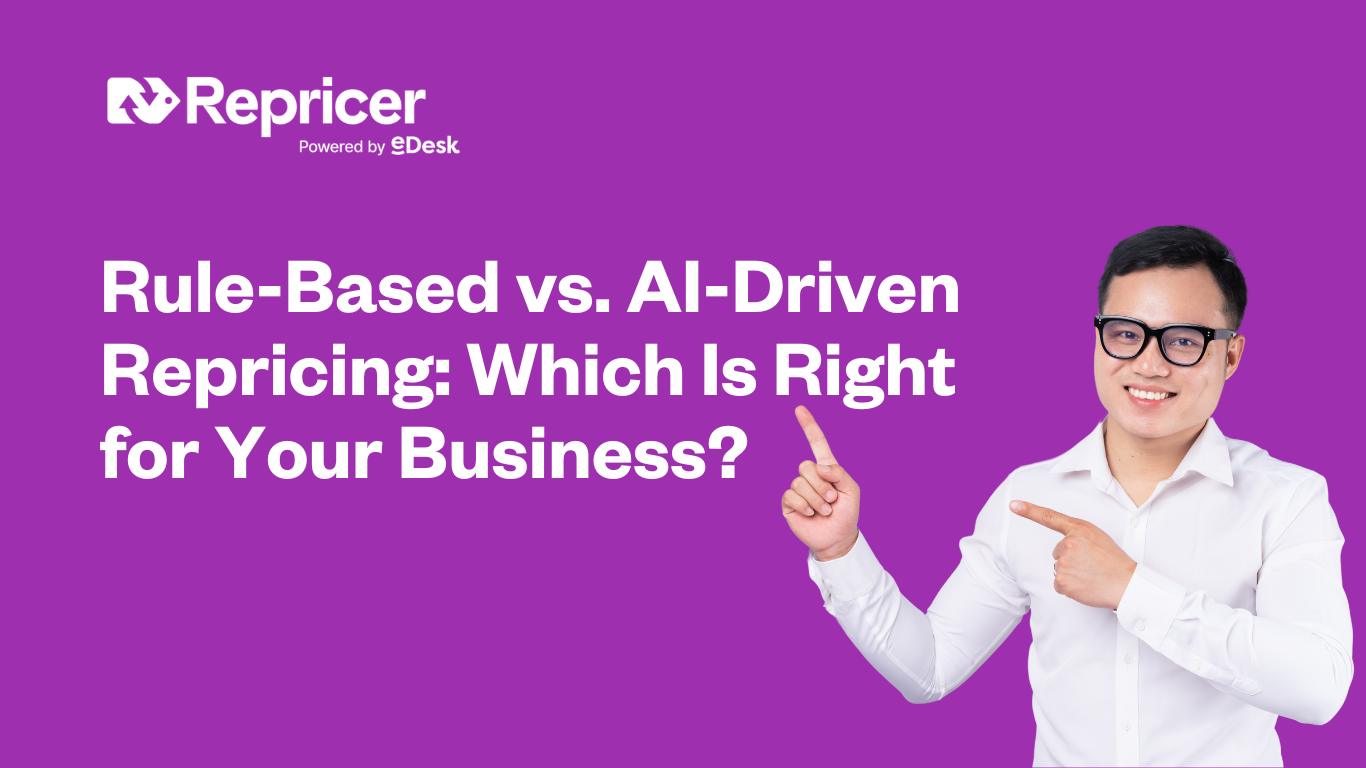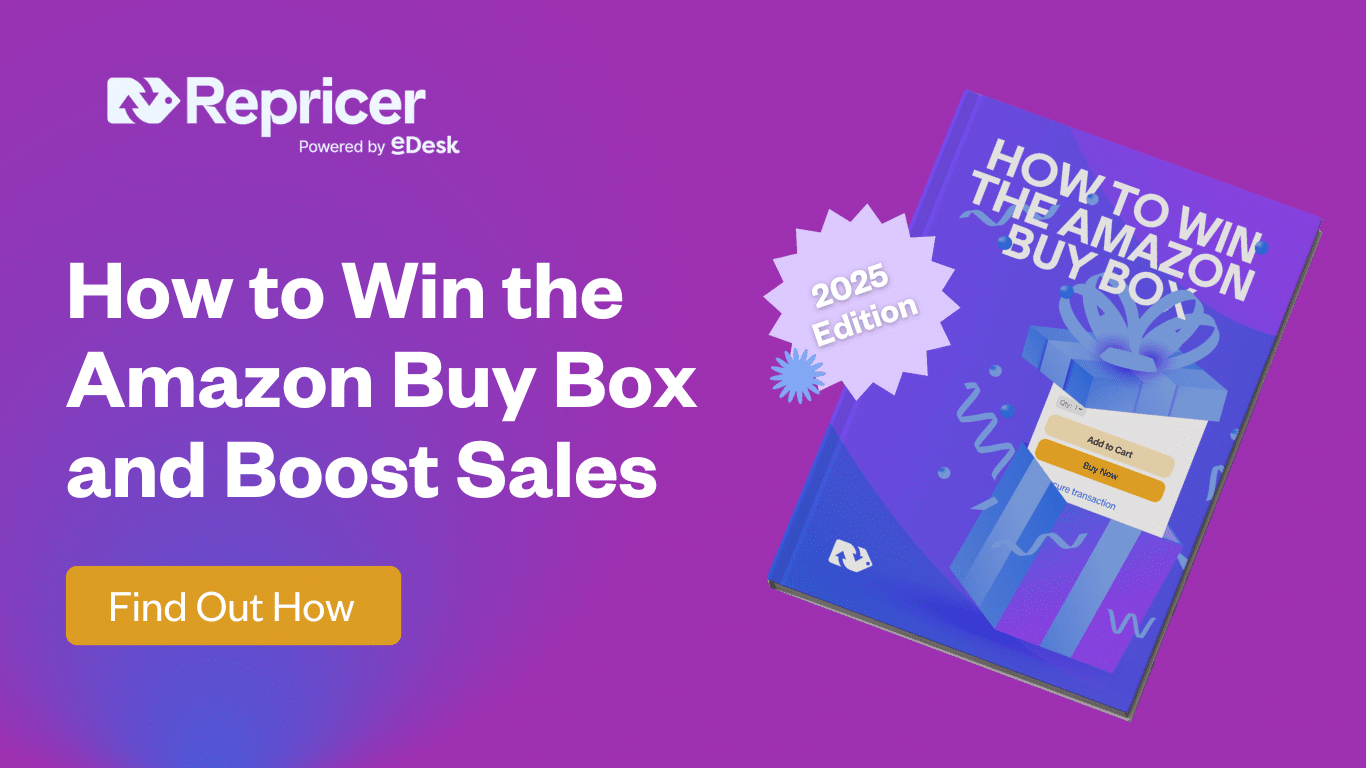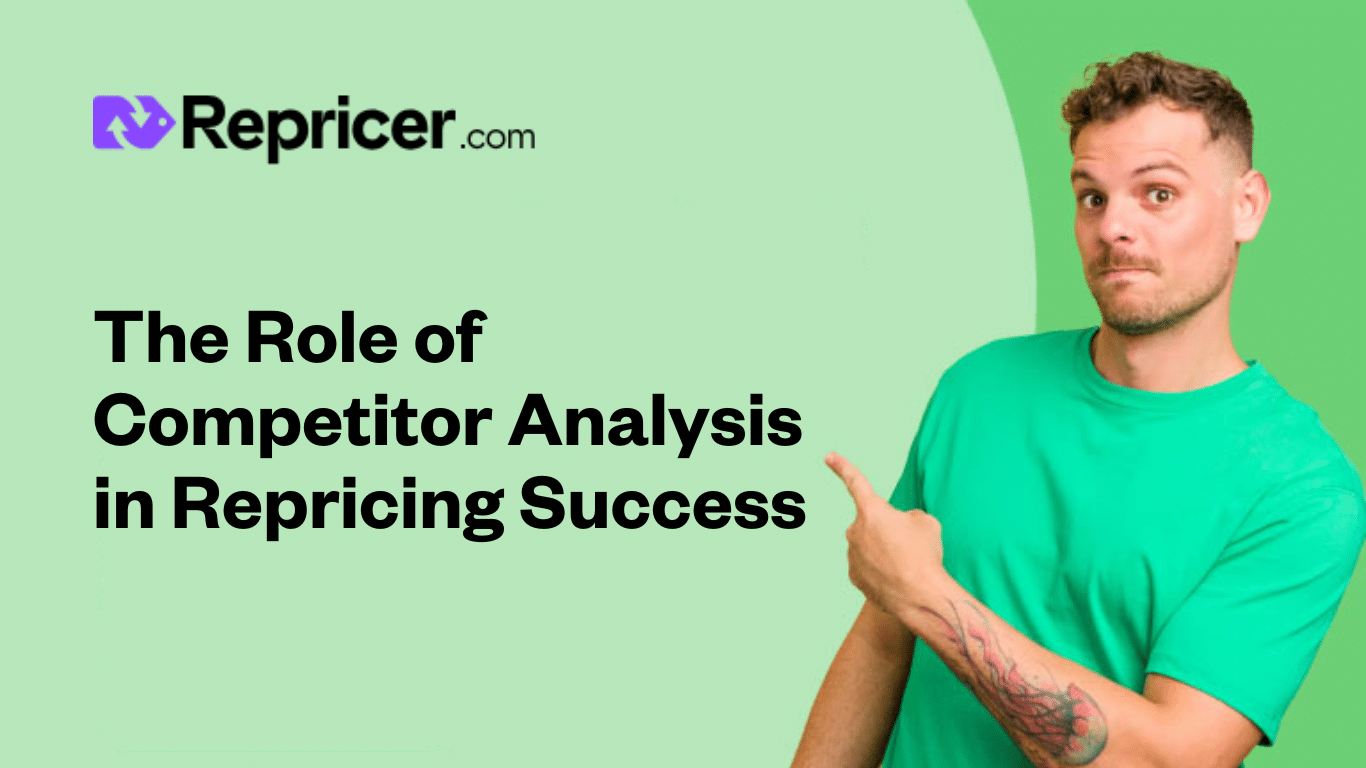Amazon Prime is synonymous with reliability and speed. Plus of course, the fact that delivery is ‘free’ – although we all know it’s not really, due to the buyer subscription fee and often inflated prices – but it’s still unsurprising that when buyers on Amazon see the Prime symbol, they feel comfortable making a purchase.
Generally, products listed on Amazon Prime get more views and achieve higher sales for this very reason.
So, Amazon Prime, coupled with the Fulfilment By Amazon (FBA) programme, is a dream scenario for many sellers. The opportunity to have Amazon store, pick, pack and fulfil your orders and get the Prime badge on your listings, making your products super tempting is an attractive offer.
However, historically, there was always one small issue with this. As an Amazon seller, you could only get the Prime badge if you were also using Amazon FBA. This was great if you were offering average sized products that and selling in volume, but what if you were a seller who offered larger or heavier products where it wasn’t cost-effective to use FBA due to storage and fulfilment costs? Or what if you already ran your own shipping outfit or used an alternative service?
Surely it was unfair that some sellers couldn’t get the Prime badge and the kudos that comes with that simply because of the type of products being sold?
Well, Amazon recognised this and introduced Seller Fulfilled Prime (SFP). SFP allows sellers who don’t use FBA to secure the Prime badge and has been a total game-changer.
If you are a business which currently fulfils your own orders but would like to benefit from offering the Prime service to your customers, then this is an excellent opportunity to reach Amazon’s loyal and active customers, but without fulfilling your products through the FBA option.
Here’s everything you need to know.
What is Seller Fulfilled Prime?
It’s really pretty straight-forward. To put it in basic terms, SFP lets you, the seller, list your products as ‘Prime’ eligible but let’s you keep control of the shipping. So, you will be responsible for shipping all orders directly to your customers, rather than relying on FBA. You’ll get the Prime badge on your products and get all the benefits that come with it, including improved search visibility and of course, a higher chance of winning the Buy Box.
So, what’s the catch? Well, as you might expect, the privilege and responsibility of being able to sell under the ‘Prime’ banner comes with the need for you to adhere to very high-performance levels including high delivery performance standards and return policies. And with good reason. Amazon must ensure they preserve their Prime reputation, so you will also need to complete a trial period before getting the full green light to go ahead.
What is the Seller Fulfilled Prime Trial Period?
Before you can display the Prime badge on your Amazon listings, you’ll need to complete your onboarding with an SFP supported carrier and ship a minimum of one Prime order with 100% on-time shipping.
This is simply to prove to Amazon that you can meet their strict SFP requirements. Once you have done this, you will be automatically enrolled, and your listings will display the Prime badge.
The length of your trial period will depend on how quickly you meet these performance requirements.
How Does Seller Fulfilled Prime Work?
Using the Seller Fulfilled Prime programme is simple. Once you have qualified for Seller Fulfilled Prime, you’ll continue to store products in your own warehouse and process orders. You’ll need to make sure you pick, pack and dispatch all orders the same day and your Amazon approved carrier will collect those orders and ship them to your customers.
Simple!
What’s the Difference Between Seller Fulfilled Prime (SFP) and Fulfilment By Amazon (FBA)?
The only real difference between Seller Fulfilled Prime and Fulfilment By Amazon is the shipping aspect of the process. SFP and FBA both give you the Prime badge and the ability to win the Buy Box, but SFP requires you to fulfil orders, and FBA doesn’t. It’s important to note that as an SFP seller, you will need to offer free delivery and absorb those costs because this is not only one of the criteria for acceptance into SFP, but fast and free delivery is what Prime is all about!
In addition, there’s nothing to stop you from using SFP and FBA together, because qualifying for one doesn’t mean you can’t use the other. Put your fast-moving products through FBA and any slower-moving goods through SFP.
Can a Buyer Tell if Their Order has Been Shipped Through FBA or SFP?
Yes, they can, but to be honest, as long as a buyer is getting the ‘Prime’ service, they really won’t care. If your buyer looks carefully in the ‘Add to Basket’ section on any Amazon product listing they will see one of three pieces of information:
- Example 1: “Ships from and sold by Amazon”. This qualifies for Prime because Amazon is the seller.
- Example 2: “Sold by [name of seller] and Fulfilled by Amazon”. This is a third-party seller who qualifies for Prime because they are using FBA.
- Example 3: “Ships from and sold by [name of seller]”. This is a third-party seller who is shipping orders themselves. They qualify for Prime as part of SFP.
So, if this all sounds good to you, you’ll need to check your eligibility.
What are the Requirements for Seller Fulfilled Prime?
As you would expect, you will have to jump through several hoops! You must have a warehouse in the UK and have an Amazon Pro account, then you’ll need to meet these requirements:
- Provide Standard Shipping for Free: This may sound a little scary. But cost should not be your prime consideration when determining whether SFP is right for your business. You may lose a little on shipping, but the other benefits can outweigh this.
- Ship over 99% of your orders on time: When you think of Prime, you automatically think next day delivery, so this is a super essential requirement, and if you do not meet these criteria, Amazon will view you as an unreliable seller. This may appear harsh, but their reputation is everything.
- Have a less than 1% order cancellation rate: This indicates customer satisfaction, so the lower yours is, the more satisfied Amazon sees your customers as being.
- Purchase your shipping labels from Amazon through the Amazon Shipping website or Buy Delivery Services.
- Deliver orders using supported SFP carriers: These include Amazon Shipping, Royal Mail, Yodel, Hermes, DPD, Parcelforce and UPS, including many other well-known carriers.
- Agree to the Amazon Returns Policy: This includes immediate return approval, free returns and a two day refund turn-around time.
- Allow all customer service enquiries to be dealt with by Amazon.
That’s quite a list! But it’s to be expected. As a Prime seller, you need to be right at the top of your game.
How Much Does Amazon Seller Fulfilled Prime Cost?
The good news is there are no additional fees associated with SFP right now, and you will only need to pay the shipping cost of the official Prime carrier you choose to fulfil your orders. Your usual Amazon selling fees will remain the same.
One thing you should keep in mind is that it is compulsory to offer free standard shipping on your products so it’s likely you will wish to re-calculate and adjust your selling prices to take this into account.
Is Seller Fulfilled Prime Suitable for my Business?
If it appears from an eligibility check that your business qualifies for Seller Fulfilled Prime, you should weigh up the pros and cons of using the service as it’s not suitable for every seller.
Advantages of Seller Fulfilled Prime
No FBA shipping or handling fees.
Despite having to choose from Amazon’s list of accepted carriers, you will save on the shipping and handling fees imposed when you use the standard Fulfilment By Amazon service.
No storage costs.
Alongside your savings on shipping, you’ll also eliminate the need to pay for the storage of your inventory and any long-term storage fees for products that are slow to sell.
Reach millions of loyal customers.
Prime users are Amazon’s most loyal users, and also the most active. By becoming Prime eligible you’ll immediately have access to these buyers.
Enjoy a reduction in competitors.
Prime subscribers will almost always filter their product searches to show only Prime results, so you will immediately eliminate a considerable amount of product competition without having to do a thing.
Achieve a higher chance of winning the Buy Box.
Owning the Buy Box gives you a massive boost to your product visibility and can lead to an increase in sales.
So far, so good! The advantages are numerous but fulfilling your own orders to stringent criteria also comes with some important considerations that must be made. That said, even those considerations which may appear to be disadvantages are not going to be deal-breakers.
For this reason, there is no ‘disadvantages list’ included here. Instead, there are some ‘important considerations that you should take into account.
Important Considerations When Using Seller Fulfilled Prime
Difficulty in maintaining eligibility.
Criteria is strict, and you cannot afford to fall behind on your fulfilment and cancellation rates. If you do, Amazon will strip you of your Prime badge without question, so it’s up to you to remain compliant.
Amazon Shipping must be used.
This is not necessarily a disadvantage because you’ll get the benefit of high delivery standards from several approved carriers, however, not having a big choice may become a gripe!
An efficient warehouse is essential.
If you are considering SFP, then it’s likely you already have a warehouse full of inventory. However, once you have achieved your Prime badge, you should prepare for an influx of orders, and your warehouse facility will need to be able to cope.
So, you’ll need to ask yourself;
- Is fulfilling your own orders viable for you?
- How much more warehouse space will you require for storage?
- Will you be able to meet Amazon’s strict shipping requirements?
- Can you adhere to Amazon’s strict refunds and cancellations terms?
Is Seller Fulfilled Prime Worth It?
Good question! The issue for many sellers is the requirement to offer free shipping as those costs have to be absorbed. However, the whole point of SFP is to enable sellers who wish to fulfil their own orders to become Prime eligible, so to calculate whether it’s worth it, SFP must be compared with FBA – the alternative way of achieving the Prime badge.
If you consider this logically, displaying the Prime badge has the potential to increase your sales dramatically, so having to absorb some shipping costs is a small price to pay for an increase in your sales volume.
In a nutshell: An increase in sales is a pretty good reason for using SFP.
Final Thoughts
The SFP criteria are strict, and the Prime badge is not something that Amazon hands out easily. If you are a newbie or you don’t have a warehouse or your account is not in good standing then you won’t get accepted into the programme anyway, so if you are interested in SFP, you should definitely get your house in order before you apply.
If you are already doing a great job and your products aren’t a good fit for FBA, then achieving the Prime badge through the Seller Fulfilled Prime route will certainly mean more sales, and a reduced customer service need, so SFP is an alternative worth considering.
Repricer.com is the fastest Amazon repricer on the market and a proud member of Amazon’s Marketplace Developer Council. Try repricing free for 14 days and increase your profits on Amazon, eBay, Walmart, Shopify and more.
